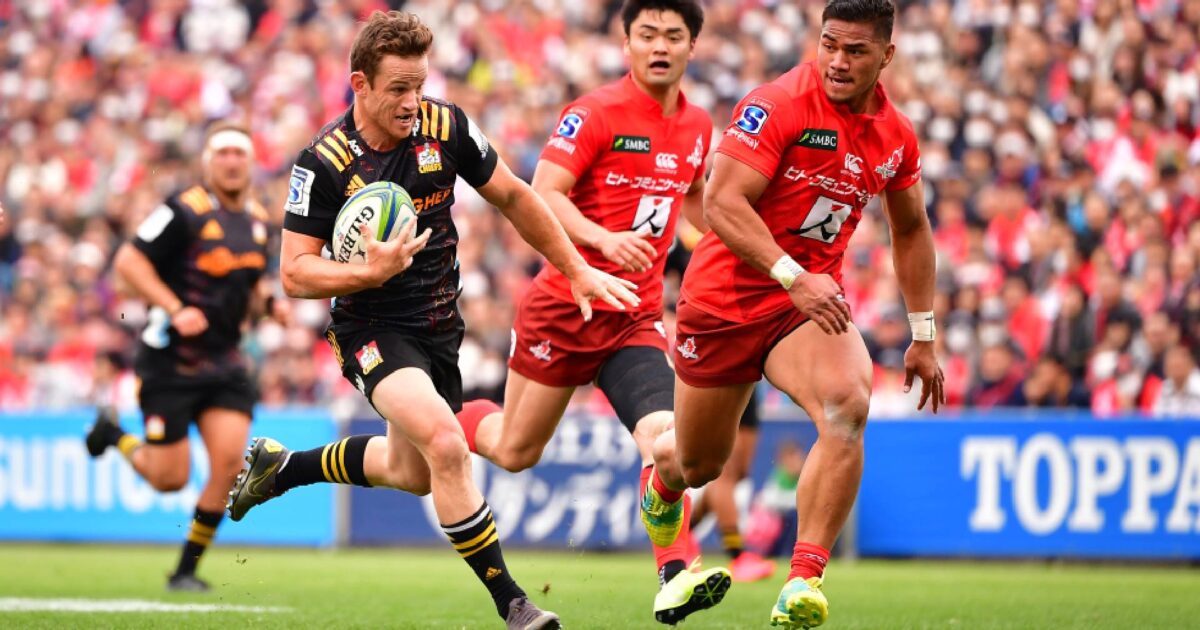Kiwi stars say Super Rugby Aotearoa is unsustainable as they reveal preference to play South African, Australian teams

The New Zealand public and wider global rugby community may have fallen in love with the concept of Super Rugby Aotearoa, but two of the competition’s star players have described the competition as unsustainable.
The Kiwi club game has enjoyed a resurgence of sorts since the domestic league kicked off last month following the three-month COVID-19 lockdown, with fan interest and TV audiences soaring since its return.
Much of the hype has been centred around the fact that the New Zealand teams and players have faced off against one another to create tight, tense, entertaining matches week after week.
Such encounters were hard to come by in the initial iteration of Super Rugby, which included teams from Australia, South Africa, Argentina and Japan.
Most teams from those regions have been largely outclassed by their Kiwi counterparts in recent times, with seven of the last eight Super Rugby champions coming from New Zealand.
That lack of competitiveness, combined with the unappealing time zones that comes with playing across the Southern Hemisphere, made the original Super Rugby competition a dull product for fans in comparison to Super Rugby Aotearoa.
With a Super Rugby revamp expected for next year and various options being considered as to how the league should be formatted, many have suggested New Zealand continue to forge their own competition.
Other suggestions have been a trans-Tasman competition with a reduced number of teams from Australia, while talk of the possible induction of a Pacific Islands team based out of South Auckland has also been prominent over the past week.
However, Chiefs and All Blacks halfback Brad Weber has revealed that he enjoys the international aspect of Super Rugby, and said that he has a preference for a format of that ilk rather than a strictly domestic league.
“I’m a little bit torn because I enjoy going to South Africa and I enjoy playing against the Australians,” he said.
“I think it’s the beauty of Super Rugby is that we do have all these different teams from around the world. I actually really enjoy that part of it.
“Going to Africa for two weeks, especially as a young fella, is a great learning experience, it’s a way to connect with the lads.
“Playing Super Rugby New Zealand derbies all the time probably isn’t sustainable around the athletes and player welfare.
“It’s pretty tough, so having that time to go away – not saying that they’re easier teams or anything like that – but I do like having that there.”
Two leading #SuperRugbyAotearoa stars say lessons need to be learned from previous failed expansions if a Pacific side is to be successfully added to a revamped version of Super Rugby.https://t.co/wGE7gL1Uth
— RugbyPass (@RugbyPass) July 15, 2020
Crusaders halfback and three-time Super Rugby champion Bryn Hall agreed with Weber in that Super Rugby Aotearoa isn’t the way forward, but admitted he wasn’t sure how a revamped league should be structured.
“I guess I’m just torn a little bit as well because you look at how Super Rugby’s been the last five years, and my thinking behind it is that New Zealand teams have probably dominated a lot of the competition,” he said.
“I think as a consumer, if you’re a New Zealander, you love watching it. Think about Super Rugby Aotearoa, how much it’s been packed stadiums, quality rugby every single week.
“It’s tough, and I don’t think it is sustainable if you wanted to have competition with just New Zealand teams.
“Let’s say we played three times, we all played three times, I don’t think it’s sustainable, and it’s probably going to dilute the product as well playing every single Kiwi team.
“I think whatever the decision is moving forward, it just has to be a competition that is competitive, every team that is available.
“I know there’s been talks of dropping a couple of Australian teams to make them competitive, or a Pacific Islands [team], or whatever it looks like.
“I’m a little bit torn, what I think the right direction is, but I think competitiveness and a product that is worth watching every single week is pretty important.”


















































